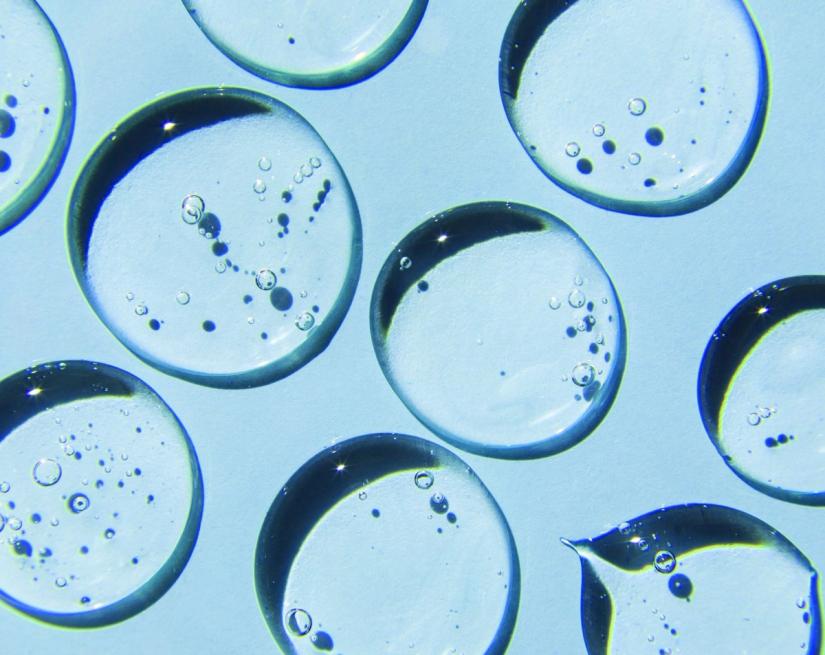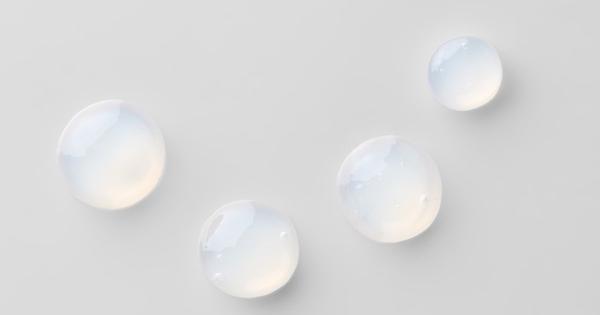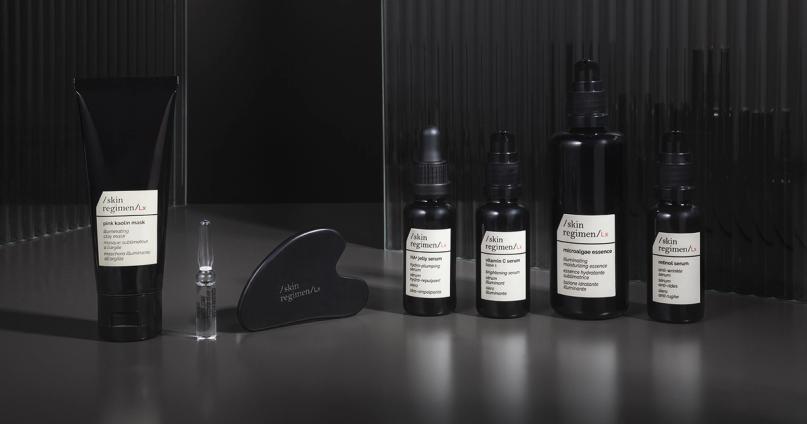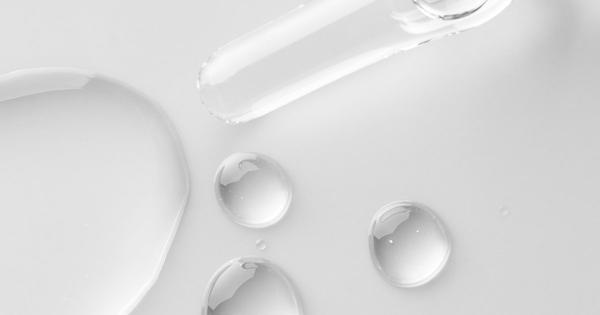SKIN REGIMEN LX HA4 JELLY SERUM
Hydra-plumping serum
skin care
Eve Mérinville | Corporate RD Excellence & SC RD and Innovation Director
10 min de lecture

You've likely seen glycerin and hyaluronic acid in your go-to skincare products. But which is better? While both are essential for deep hydration and healthy skin, the answer depends on your skin's specific needs. We’ll help you understand each ingredient's properties, differences, and how they work together to help you effectively integrate them into your daily skincare routine.
Glycerin, also called glycerol, is a natural compound found in our bodies. It plays an essential role in helping to build cell membranes and is part of the skin's natural protective layer, called the hydrolipidic film. This film acts as a natural protective barrier, reducing water loss and helping to keep the skin soft, hydrated, and balanced.
Glycerin has been one of the most widely used ingredients in skincare for decades. This is because of its effectiveness and gentleness, even on sensitive skin.
Glycerin is a powerful humectant, meaning it attracts and retains moisture in the upper layers of the skin. This quality helps keep your skin from getting dry and irritated and prevents the breakdown of the skin barrier. As a result, it helps make the skin more elastic, radiant, and resilient to external stressors. It’s great for oily skin because it adds hydration without extra oil or a heavy feel, and, by keeping skin properly moisturized, glycerin can even help balance oil production.
But glycerin doesn't just bring water in; it also helps your skin hold onto that moisture. It reinforces the barrier that keeps water from escaping, which strengthens your skin's outer layer and prevents it from getting dehydrated. Even though it helps trap moisture, glycerin is non-comedogenic, so it does not clog your pores. Instead, it keeps the skin hydrated without interfering with normal oxygenation or the skin’s natural cell turnover.
Glycerin is generally very safe and has few reported side effects. However, when its concentration is too high (above 10%) or the climate is extremely dry, it can actually do the opposite of what you want. Instead of pulling moisture into your skin, it might pull water out of the deeper layers of your skin. This could leave your skin feeling drier and more fragile over time. If a product has a high concentration, make sure it’s paired with occlusive ingredients, such as plant oils or butters, which help "seal" moisture into the skin
Hyaluronic acid is a large sugar-based molecule that's a natural and essential part of our skin's structure, and it can hold up to 1,500 times its weight in water. 50% of the hyaluronic acid in our body is found in the skin, where it plays a crucial role in maintaining firmness, elasticity, and high levels of hydration.
Around the age of 25, we begin to gradually lose some of the natural hyaluronic acid in our skin. This decrease can lead to a loss of skin volume, dehydration, and the appearance of the first wrinkles. That's where skincare products with hyaluronic acid come in.
Cosmetic scientists have figured out how to make better, stronger versions of hyaluronic acid that are more effective and resilient with improved moisturizing properties.
For example, in the Skin Regimen Lx HA4 Jelly Serum has included three innovative forms of this molecule that work on every layer of the skin.

Hyaluronic acid works alongside collagen and elastin to maintain the skin's firmness and elasticity. Larger hyaluronic acid molecules tend to stay on the skin's surface, where they form a hydrating film that boosts radiance, smoothness, and firmness, giving your complexion a vibrant look. Smaller molecules, however, can penetrate deeper into the skin. Once inside, they encourage your skin to produce more of its own hyaluronic acid, leading to increased moisture levels, improved elasticity, and a noticeable plumping effect.
Beyond its hydrating benefits, hyaluronic acid can help acne-prone skin by:
Hyaluronic acid is generally very well-tolerated and doesn't usually cause side effects. However, those with sensitive skin might experience mild reactions like redness, irritation, or itching. If this happens, it's best to stop using the product right away.
Even though both glycerin and hyaluronic acid are great for skin hydration, they work differently. Think of it this way: while both help quench your skin's thirst, glycerin is like a gulp of water, and hyaluronic acid is like a deep reservoir of moisture.
| CHARACTERISTICS | GLYCERIN | HYALURONIC ACID | |
| CHEMICAL NATURE | Small molecule with moisturizing effect. | High molecular weight substance, gel-like consistency. | |
| MOLECULAR WEIGHT | Around 92 daltons (very light). | From 3,000 to 2,000,000 daltons, depending on the type. | |
| STRUCTURE | Simple molecule with 3 groups that bind water molecules (-OH). | Molecule made of complex sugars with numerous groups that bind water molecules (-OH). | |
| FUNCTION | Draws water from surrounding environments. | Retains a large amount of water, providing volume and hydration to the skin. | |
| SKIN PENETRATION | Easily penetrates the superficial layers of the skin. | Can remain on the surface or penetrate the skin depending on the type and size. |

Both glycerin and hyaluronic acid are excellent for all skin types, and using them together is often more effective than using just one. Here's how they can benefit specific skin types:
The best choice depends less on the ingredient itself and more on its concentration and how it's formulated. For example, too high a concentration, especially on sensitive skin, can actually overwhelm your skin's barrier, leading to redness or irritation.
The simple answer is: neither is definitively "better." There's no single winner between glycerin and hyaluronic acid in skincare because the best choice depends on your skin’s specific needs. The best products often use both, as they work even better together to restore your skin’s natural radiance and fullness.
Yes, glycerin and hyaluronic acid are complementary, and they work best together. The combined hydration from glycerin and hyaluronic acid reaches all layers of the skin, keeping it healthy and plump while helping to prevent environmental damage, imperfections, and signs of aging.
The Hydramemory Water Source Serum is another example of how glycerin and hyaluronic acid can help your skin adapt and stay well-hydrated and bright, no matter the environmental conditions.
This fresh, light serum provides hydration and glow even to the most dehydrated and dull skin thanks to prickly pear extract and, most importantly, macro-hyaluronic acid. This combination ensures an 83% increase in immediate hydration and a 32% boost in radiance.
The HA4 Jelly Serum from our /skin regimen/Lx line perfectly shows how glycerin and hyaluronic acid can work together in a gentle yet powerful way.
This serum delivers deep, long-lasting hydration at every level of your skin thanks to its use of macro, micro, and cross-linked hyaluronic acid. These work with our Longevity Complex™ and snow mushroom extract to give you an immediate 41.9% boost in hydration and a natural plumping effect on wrinkles and fine lines.

Hydra-plumping serum
Hydration boosting serum
Firming smoothing serum
Soothing fortifying serum